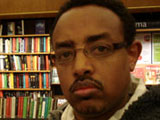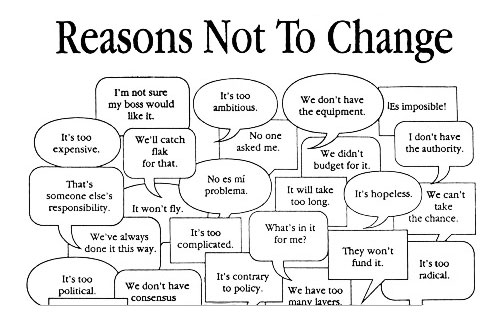The god of Small Changes
by Mesfin Negash / November 16, 2012 / 1 Comment
Not everything can change in just one day.
In most of the discussions I come across—formal and informal, big and small—one question recurs more frequently than any other: Why is the world (usually the political system under discussion) not changing for good as much and fast as people want it to be changed?

- Why does a country with her own unique alphabet and long history of writing persist to deny citizens the right to freedom of expression in this era of Expression? No other country in Africa may typify this paradox more than Ethiopia. As Leopold Senghor’s famous collection of poems entitled “Ethiopiques” remained ‘powerful and popula’ so does the source of his intriguing title, Ethiopia, in her own ways. In “Ethiopiques,” I share Ethiopian views on pertinent issues related to journalism, culture and, of course, the overarching subject of politics.

- Mesfin Negash is an Ethiopian journalist living in exile in Sweden. He is one of the journalists accused of “terrorism” in 2011 by the Ethiopian government. The co-founder and first editor-in-chief of an acclaimed Ethiopian newspaper, Addis Neger, he is currently the Managing Editor of Addisnegeronline.com. He is a political science student by training and known for his critical commentaries on significant political and social issues.
This question intentionally ignores the fact that a majority of the people in any given country are either disinterested in or ignorant of the political system they are living in. The range of responses are varied. One consistent, rather underlying reason is that those concerned are not acting. Mind you, this is not about acting wrongly, but about not taking any conscious action at all towards the change one wishes. Why are these individuals not acting? Again, the answer will depend on the imagination and experience of the person reflecting. Of course, their explanation could be genuine or a kind of defense mechanism used to absolve oneself from taking responsibility.
Change is the most profound of all ideas in human life. Especially in this “age of change” status quo appears not only unwanted, but impossible. The depth of change asked for in any given area of life may be open to debate, but what is more important to ask is if those demanding change are clear and honest about their quest, which entails some kind of responsibility to effect the change. Indeed, I have observed one key disconnect common to all so-called “pro-democracy” activists: The link between small changes and big results.
Almost all so-called “pro-democracy” activists, regardless of their ideological variance, demand or aim at big changes in Ethiopia’s political reality. Yet three interconnected factors decide the result: The number of individuals taking responsibility, the number and quality of changes, and the link between the small changes and the intended higher goal(s). What is more pertinent here are the first and the last points.
There are thousands, if not millions, who claim they need a genuine democratic transition declaring readiness to contribute. But the moment the rhetoric ends and practical engagement begins, the majority of them lose the imagination to link the smallest change they can make with the final intended result of building a democratic society. A few of them have genuine reasons to retreat or change course; the rest simply lose their insight and, eventually, hope in their own capacity. I see people who believe in Big Changes but have no trust in the Small Changes they can make. The political history of the world can hardly give us any precedence where Big Changes happened before and without Small Changes. No political change ever happened without the Small Changes made by ordinary, nameless citizens. Only those who have the insight to link the smallest contribution they can do with society’s higher goal can master bringing real change; only these visionaries innovate new methods of fighting dictatorship; only these thinking men and women keep the highest moral standards linked with small acts; only these people persevere in the face of hardship to keep on making small changes; in them the hope of human progress dwells.
I trust in the god of Small Changes! I believe in the makers of Small Changes!






One Comment on "The god of Small Changes"
I trust in god of small changes too!